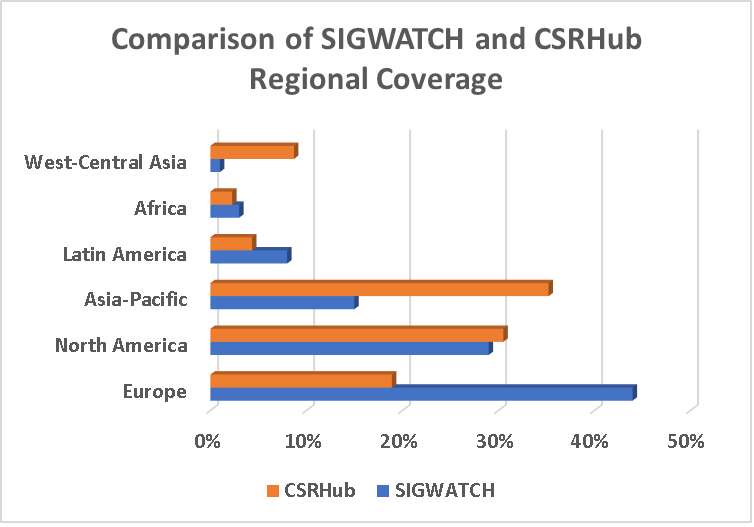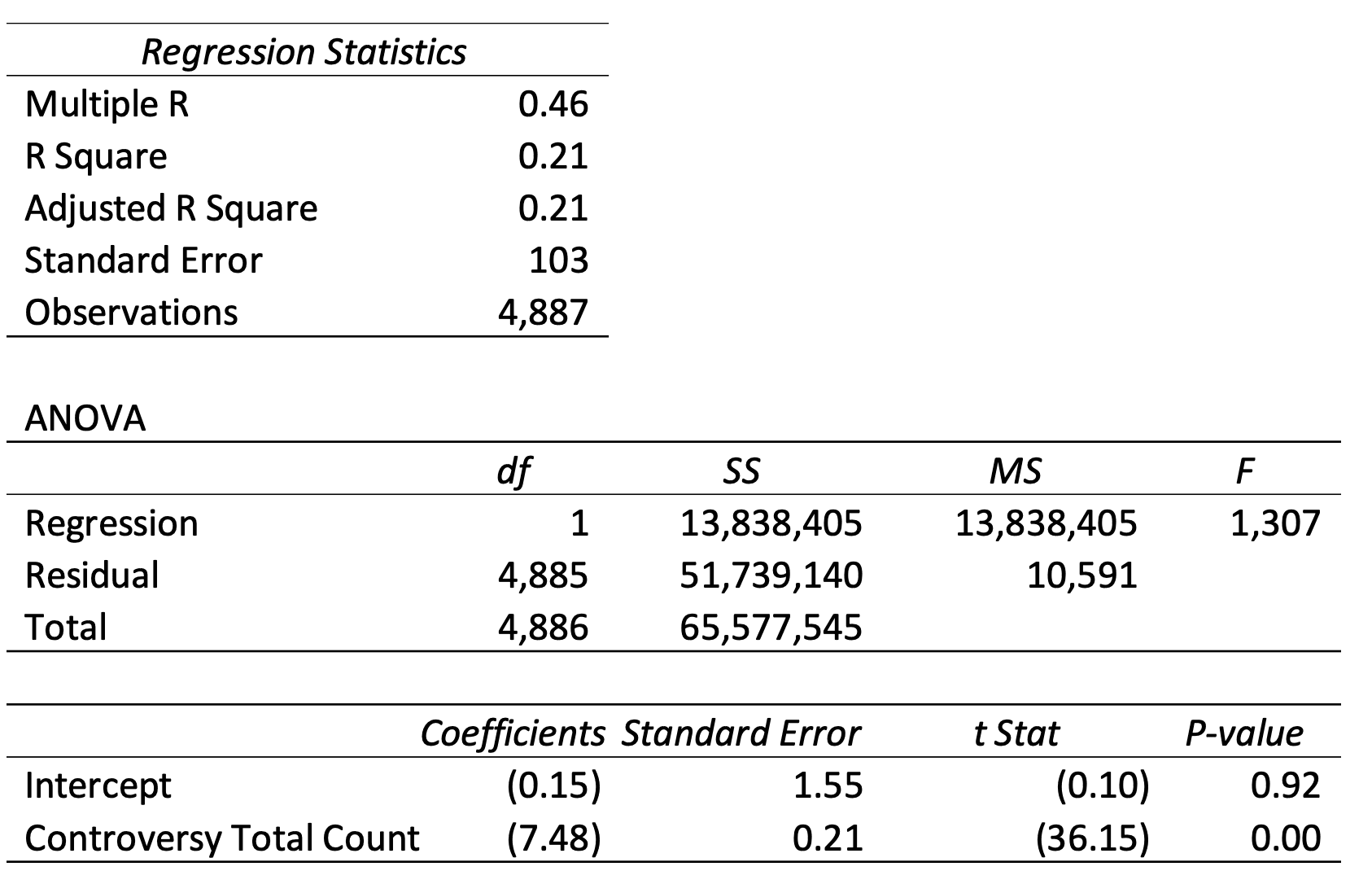Our friends at SIGWATCH track the views of non-government organizations (NGOs) on company sustainability. They recently dramatically expanded their coverage. They have shared information on more than 17,000 of the 38,467 entities they track. We have ratings for almost 15,000 of the entities we received data on.
The 50,000+ entities that CSRHub covers have a different regional distribution from those that SIGWATCH monitors. As you can see below, SIGWATCH has extremely deep data on European entities—probably because its clients provide it with lists of NGOs to poll (and many of its clients are based in Europe).

Out of the more than 850 sources we ingest, SIGWATCH is the only group that focuses on NGO and not-for-profit input. They look for both positive or negative comments from NGOs. They break their data down into Environment, Sustainability, and Governance (ESG) related topics such as: Animal Rights, Biodiversity, Children, Climate Change and Intellectual Property Rights. At the overall level, they summarize a company’s history over the past four years. SIGWATCH as a separate data set that covers “NGO pressure”—the efforts NGOs make to get companies to change specific behavior.
As is true with most ESG data sets, many entities receive a null/not available score on some or most issues. Many NGOs feel they can engage more effectively with companies through quiet, private outreach. A few entities draw a lot of attention. They tend to be the largest companies or those in “exposed” sectors such as mining or consumer goods.
SIGWATCH’s perspective means that it agrees most with sources that track “controversies.” The best-known source in this area is MSCI’s ESG Controversies data set. As we expected, there is a strong (21%, F score > 1,300) correlation between the net positive or negative view from SIGWATCH and MSCI’s Controversy Total Count score. Why isn’t the correlation higher? Remember, SIGWATCH is looking at issues from an NGO perspective—MSCI is driven by company self-reported data.

Interestingly, the correlation between SIGWATCH’s net view and MSCI’s Controversy Score is lower (only 6%, F score > 300). This suggests to us that both data sets are sensitive to the frequency with which controversies occur but that SIGWATCH’s NGO audience has a different perspective on controversies than MSCI’s investor audience.
CSRHub seeks to include the input and views of all of the stakeholders of the entities it rates. Most of our data sources start from information that companies have disclosed publicly. They then analyze these disclosures and add analyst views, model calculations, or sentiment analysis to build their scores. Some sharing of base data and similarity of methods embeds a common element in each source’s view. We extract and use this agreement—this consensus—to generate our ratings. SIGWATCH’s perspective adds another dimension to our analysis. We are happy to include more data on both the positive and negative impact of NGOs in our scores, as they are an important part of society and long-time drivers of ESG thinking.
 Bahar Gidwani is CTO and Co-founder of CSRHub. He has built and run large technology-based businesses for many years. Bahar holds a CFA, worked on Wall Street with Kidder, Peabody, and with McKinsey & Co. Bahar has consulted to a number of major companies and currently serves on the board of several software and Web companies. He has an MBA from Harvard Business School and an undergraduate degree in physics and astronomy. He plays bridge, races sailboats, and is based in New York City.
Bahar Gidwani is CTO and Co-founder of CSRHub. He has built and run large technology-based businesses for many years. Bahar holds a CFA, worked on Wall Street with Kidder, Peabody, and with McKinsey & Co. Bahar has consulted to a number of major companies and currently serves on the board of several software and Web companies. He has an MBA from Harvard Business School and an undergraduate degree in physics and astronomy. He plays bridge, races sailboats, and is based in New York City.
About CSRHub
CSRHub offers one of the world’s broadest and most consistent set of Environment, Social, and Governance (ESG) ratings, covering 50,000 companies. Its Big Data algorithm combines millions of data points on ESG performance from hundreds of sources, including leading ESG analyst raters, to produce consensus scores on all aspects of corporate social responsibility and sustainability. CSRHub ratings can be used to drive corporate, investor and consumer decisions. For more information, visit www.CSRHub.com. CSRHub is a B Corporation.